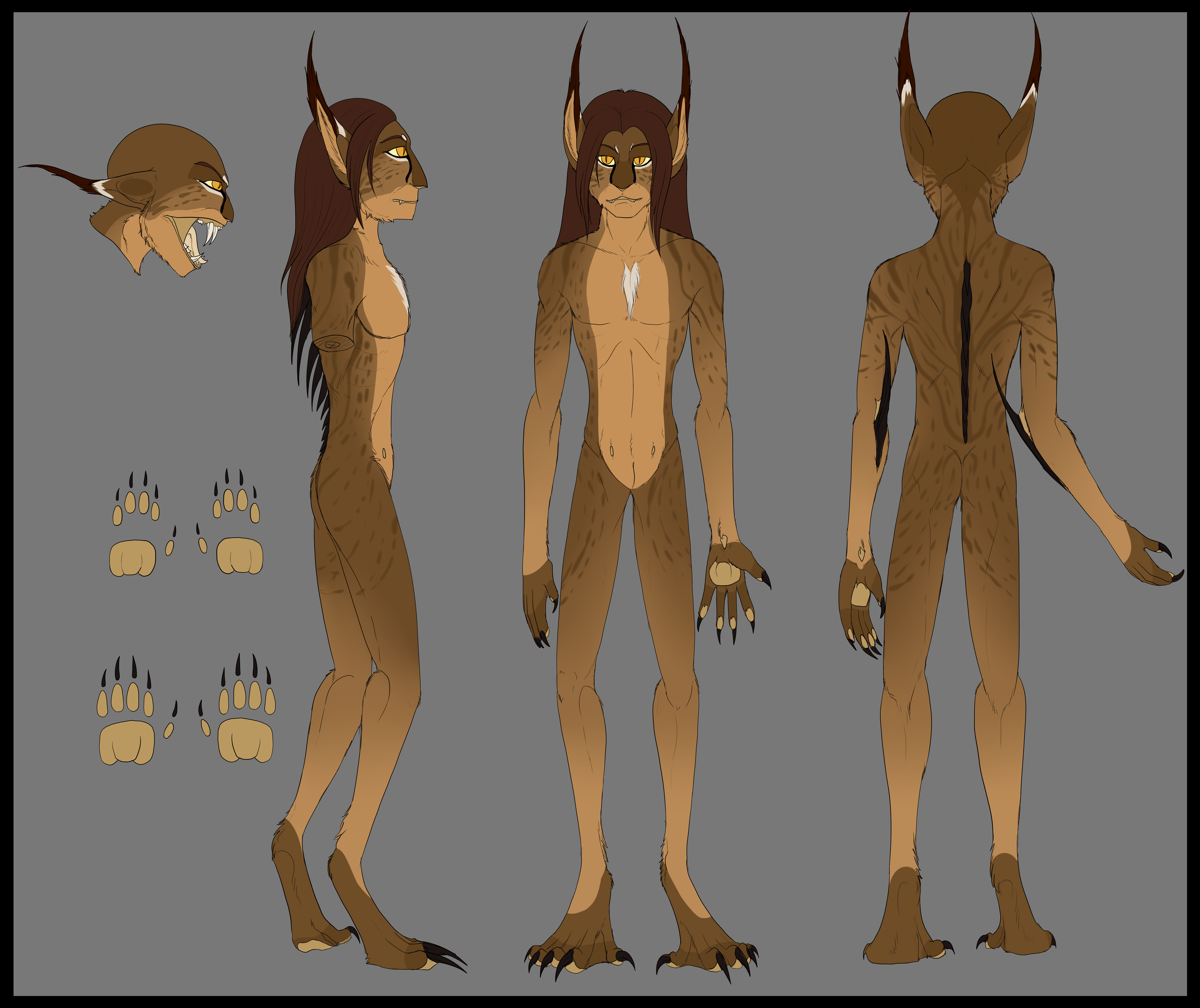Subtypes
Dykuma (Kivuuli Subtype)
Another Kivuuli subspecies is the Dykuma (Called Kuma for short) Kivuuli. They evolved in the savannas and deserts, outside of Between. They are slim and incredibly nervous and jumpy. They hunt at night, and are specialized to hunt the various fauna found in the desert and savannah lands. The majority of their diet consists of jackrabbits, lizards, snakes, insects and rodents. They are immune to snake venom, and if they eat enough venomous snakes, they will actually store the venom in their saliva and use it against larger prey they may find.
These Kivuuli are not as tall as most, averaging around seven feet tall and spend most of their time asleep in their dens, usually clawed into sandstone and covered in grass.
They are most active at night, dawn, and dusk and generally avoid the heat of the day.
They have membranes that reach high on their spines, which they use to control their body temperature. It helps them shed heat like the jackrabbit’s large ears, and gather heat on cold mornings.
Their fur is very thin and short, but can puff up to keep them warm on cold mornings. Desert winters can be harsh and cold, and thus they grow in a thicker coat during the winter and shed it in the spring. When not hunting, they are sleeping, and come off as downright lazy.
Skittish and flighty, this subspecies will not attack you. If attacked they will quickly run away be it night or day.
Their dewclaws spread out to the side, and they have webbing on their pawlike feet, this allows their weight to spread evenly when walking on sand. Their pads are incredibly thick and heat resistant.
Colonies are small, usually consisting of small family units, and any loners that may join with them. A female often seeks out other Kivuuli territories when in heat, for greater genetic diversity since members of a Colony are often related. Like all Kivuuli, the females are bigger, stronger, and more dominant than the males; but their spines are the same length for both genders since they are used for heat management and not just for dominance or show. Like all Kivuuli, males are more common than females.
